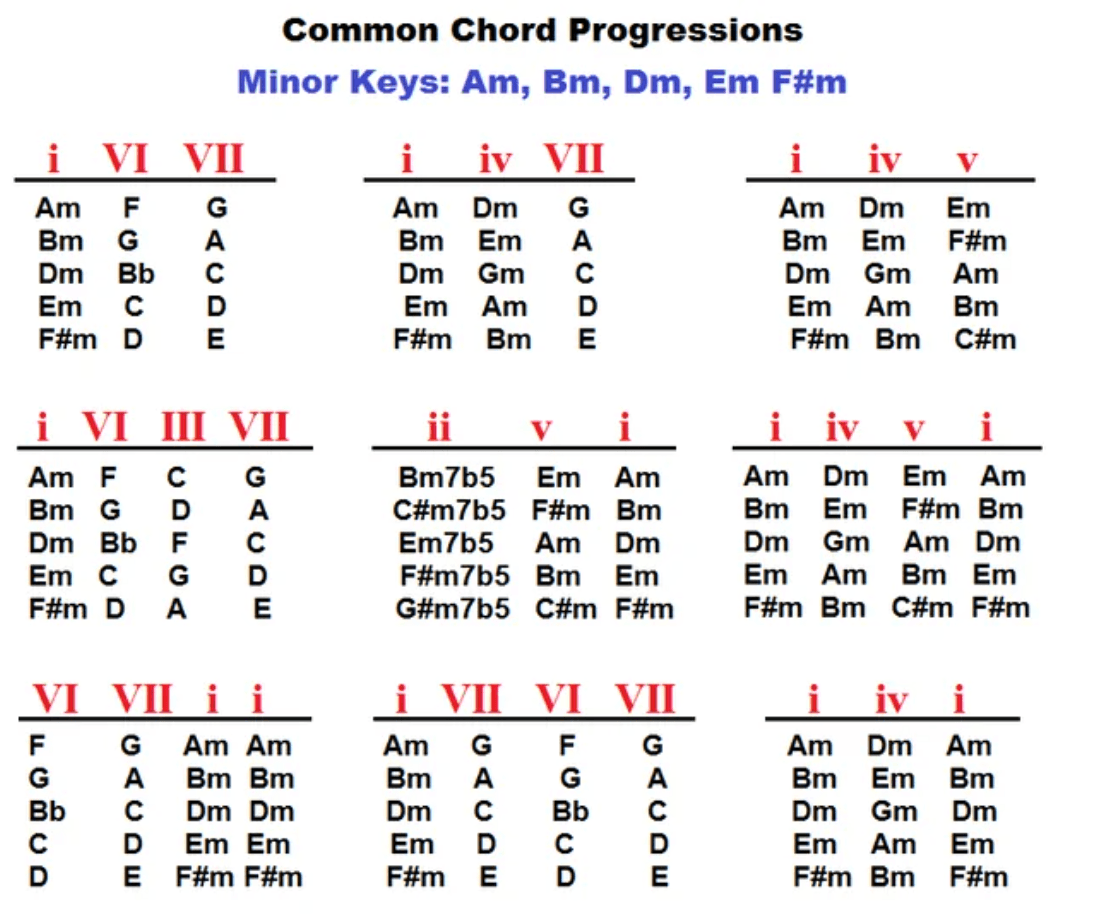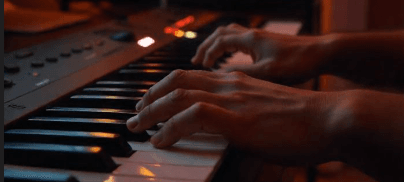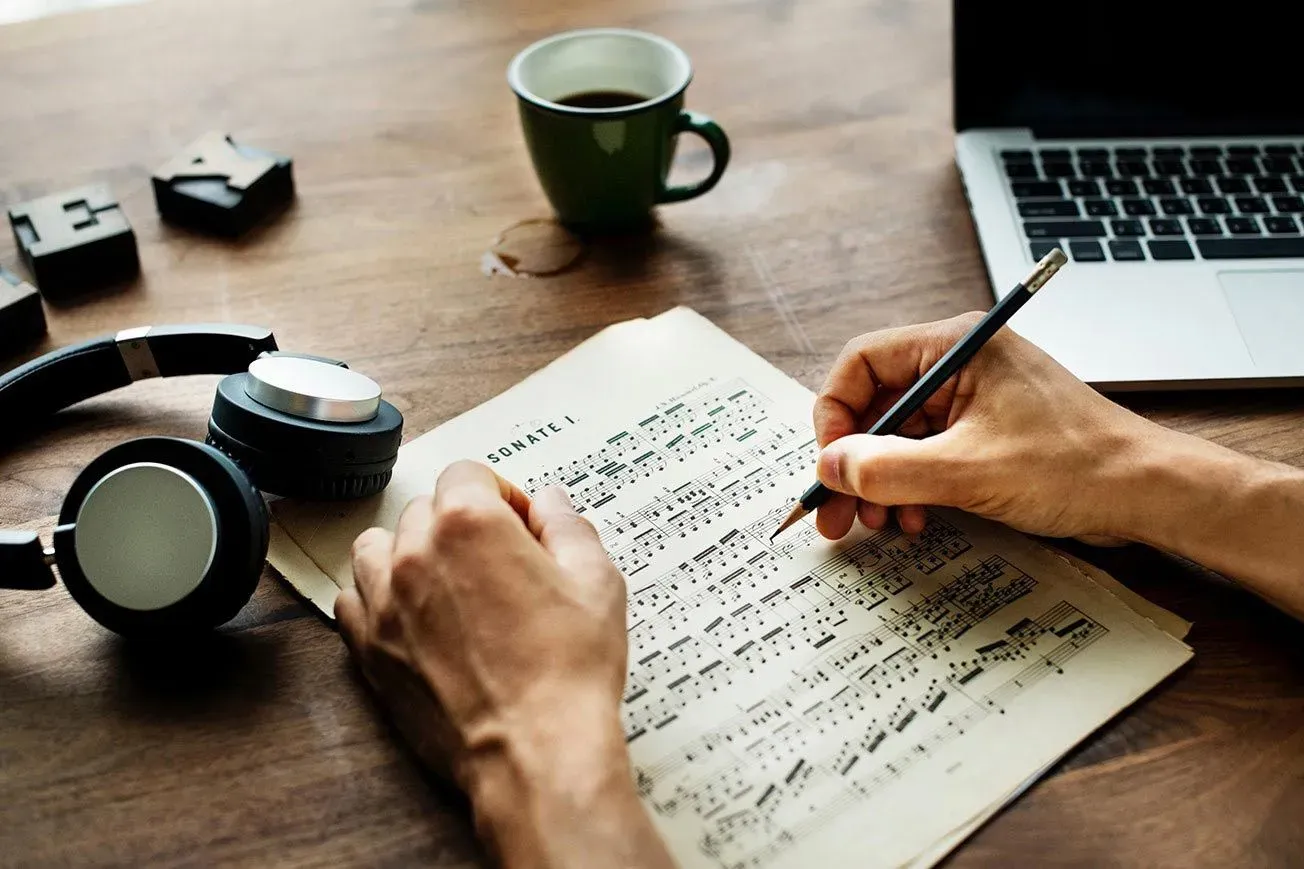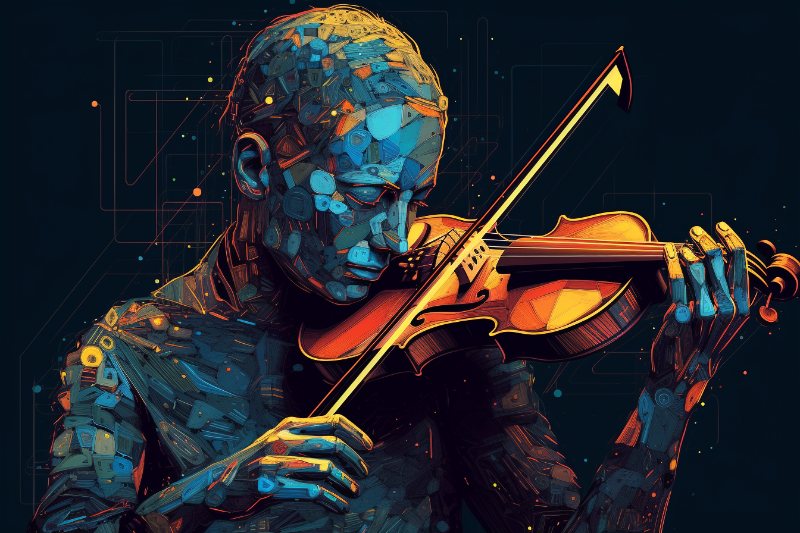
What is an AI song generator?
An AI song generator, also known as an artificial intelligence song generator, is a computer program or algorithm that is trained to compose and generate music autonomously. Using machine learning techniques, AI song generators analyze vast amounts of musical data and patterns to create original compositions.
AI song generators utilize deep learning algorithms and neural networks to process and learn from extensive music libraries. The algorithms analyze musical elements such as chord progressions, rhythms, and melodies, and identify patterns and structures commonly found in different genres. By understanding these patterns, AI song generators can create music that aligns with specific styles or imitates the works of famous composers.
One popular example of an AI song generator is OpenAI's "Jukedeck," which allows users to generate royalty-free music for various purposes, such as video backgrounds, advertisements, and podcasts. Jukedeck's AI system is trained on a diverse range of musical genres and can generate music based on specific inputs, such as desired mood, tempo, and duration.
While AI song generators offer exciting possibilities for music composition and production, they also raise questions about the role of human creativity and the future of the music industry. Critics argue that AI-generated music lacks the emotional depth.
That is why at Empress we believe in viewing AI as tool. Let it be the hammer for you to nail down the perfect song. Our tools provide ai chord generation, ai lyric generators, and ai marketing tools.
The Rise of AI Song Generators
The emergence of AI song generators has brought about a significant transformation in the music industry. These groundbreaking tools utilize artificial intelligence to generate one-of-a-kind compositions. Through intricate algorithms, they analyze text and convert it into mesmerizing melodies.
What is an AI Song Generator?
An AI song generator is a computer program that uses artificial intelligence to create original musical compositions. By analyzing patterns and structures in existing music, the AI can generate melodies, harmonies, and lyrics that mimic the style of different genres or artists. The purpose of an AI song generator is to automate the creative process of composing music, allowing musicians and producers to quickly generate ideas and explore new possibilities for their own songs or projects. With its ability to create unique compositions based on inputted text or desired themes, an AI song generator opens up endless opportunities for innovation in the music industry.
How do AI Song Generators Work?
Data input and preprocessing is a crucial step in the functioning of AI song generators. These systems utilize a vast amount of music data, including lyrics, chord progressions, and melody patterns. The data is processed to extract meaningful features that can be used by machine learning algorithms.
Machine learning algorithms play a key role in AI song generators. They analyze the preprocessed data and learn patterns to create original compositions. Deep neural networks such as recurrent neural networks (RNNs) or transformer models are commonly employed for this task. These algorithms enable the generator to understand musical structures and generate melodies that are coherent and appealing.
The melody generation process involves combining the learned patterns with user-specified inputs or prompts. Based on these inputs, the AI song generator generates melodies by predicting subsequent notes or chords using probabilistic models derived from training on extensive music datasets. This iterative process results in unique compositions tailored to specific preferences while maintaining musical coherence and creativity.
Benefits of AI Song Generators
1. Unlimited Creativity: AI song generators have the ability to produce an endless variety of melodies, helping artists tap into new and innovative musical ideas.
2. Time and Cost Efficiency: With AI song generators, musicians can save valuable time by quickly generating melodies instead of spending hours composing from scratch. Additionally, this technology eliminates the need for expensive studio sessions or hiring professional composers, making it a cost-effective solution for creating music.
Unlimited Creativity
- Endless musical possibilities arise with AI song generators, allowing musicians to explore uncharted territories and push the boundaries of traditional music.
- These tools have the ability to generate unique melodies that are both captivating and original, providing a fresh perspective for composers and songwriters.
- With AI technology, innovative combinations of genres become effortless, as these intelligent systems can seamlessly blend different styles to create something entirely new. The potential for creativity knows no bounds in the realm of AI-powered music production.
Time and Cost Efficiency
Faster songwriting process: AI song generators have revolutionized the speed at which songs are created. By instantly generating melodies and lyrics based on inputted text, artists can rapidly explore different ideas and concepts, significantly reducing the time spent on traditional manual composition methods. AIO, our all in one tool can instantly generate a song template with chords, lyrics, and rhythms to explore.
Reduction in production costs: With AI song generators, musicians no longer need to hire expensive producers or session musicians for every project. This technology enables them to create professional-quality tracks independently, eliminating the financial burden of studio fees and session fees, resulting in substantial cost savings.
Increased productivity for musicians: The accessibility of AI song generators has vastly increased productivity levels for musicians. They can now effortlessly generate multiple compositions within a short amount of time, allowing them to focus more on refining their craft and exploring new creative avenues instead of getting caught up in tedious tasks associated with traditional music production processes.
Personalized Melodies
Tailored music based on input text allows users to transform their words into unique melodies. With AI song generators, individuals can easily customize elements like tempo and mood, ensuring the music perfectly reflects their desired vibe. This technology not only empowers listeners to create personalized soundtracks for any occasion but also provides artists with a platform to express their individuality in composing music that speaks directly to the listener's heart.
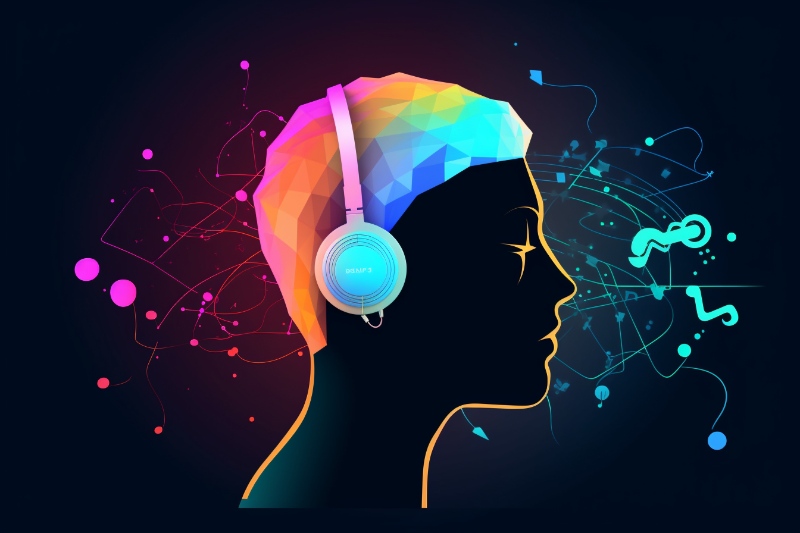
Challenges and Limitations of AI Song Generators
Despite their advancements, AI song generators still struggle to capture the depth of human emotion and convey authentic feelings through music. The lack of emotional nuance in the generated songs often leaves listeners yearning for a more heartfelt connection.
Copyright and intellectual property concerns also pose significant challenges for AI song generators. As these systems learn from existing compositions, there is a fine line between imitation and infringement. Ensuring proper attribution and avoiding legal disputes remains an ongoing issue.
Additionally, user interface and user experience can hinder the widespread adoption of AI song generators. Complex interfaces or limited customization options may deter users, limiting their ability to fully explore the potential creativity offered by these tools.
By addressing these challenges head-on, developers can push the boundaries of AI technology in music composition while striving to deliver emotionally resonant experiences without compromising on originality or usability.
Lack of Emotion and Authenticity
Limitations in capturing nuanced emotions:
- AI song generators struggle to accurately interpret and capture the subtle nuances of human emotions.
- The complex interplay of tone, pitch, rhythm, and phrasing that conveys deep emotional expression is often lost in machine-generated melodies.
Difficulty in replicating human expression:
- Human expression is multifaceted and dynamic, making it challenging for AI systems to replicate with precision.
- The lack of personalized touch and idiosyncrasies that are inherent to human performances results in a certain level of artificiality in the generated music.
Challenges in creating authentic musical experiences:
- Authentic musical experiences rely on the genuine connection between a performer or composer and their audience.
- AI song generators may generate technically proficient compositions but often fall short when it comes to evoking an emotional response from listeners.
Copyright and Intellectual Property Concerns
Ownership disputes over generated songs can arise when multiple individuals or entities claim rights to the same composition. As AI song generators become more prevalent, determining rightful ownership becomes a complex challenge that requires careful examination of contributing factors and agreements.
Issues with copyright infringement are a significant concern in the realm of AI-generated music. Since these algorithms can mimic existing styles and melodies, there is an increased risk of unintentional plagiarism or unauthorized use of copyrighted material. Clear guidelines and robust monitoring systems are essential for protecting creators' rights and ensuring ethical practices.
The legal implications surrounding AI-generated music extend beyond ownership disputes and copyright infringement. Questions regarding the originality, authorship, and liability arise as these technological advances blur traditional boundaries. Legislation must adapt to address these challenges while considering both artistic innovation and intellectual property protection in this rapidly evolving landscape.
User Interface and User Experience
Improving ease of use for non-technical users involves simplifying complex features and providing clear instructions, ensuring that anyone can navigate the AI song generator effortlessly. Enhancing customization options for users' preferences allows individuals to tailor their music according to their unique style and taste, fostering a sense of ownership over the generated melodies. Creating intuitive interfaces is crucial in enhancing user experience by designing layouts that are easy to understand, employing logical workflows, and incorporating visual cues for seamless interaction with the AI song generator.
AI Song Generators in the Music Industry
Collaborations between AI song generators and human artists are revolutionizing the music industry. These innovative partnerships allow musicians to explore new creative avenues by combining their unique talents with the capabilities of artificial intelligence. The result is a fusion of human emotion and technological precision that pushes the boundaries of musical expression.
In addition to facilitating collaborations, AI song generators are also enhancing music production processes. By automating tasks such as melody creation, chord progression generation, and arrangement composition, these tools streamline workflow and increase efficiency for producers. This frees up valuable time for artists to focus on other aspects of their craft while still maintaining control over their artistic vision.
Furthermore, AI song generators present exciting opportunities for independent artists. With these tools at their disposal, aspiring musicians can now produce high-quality tracks without expensive studio equipment or professional training. This democratization of music production empowers individuals from diverse backgrounds to share their voices and stories with the world.
As technology continues to advance, we can expect even greater integration of AI song generators into various facets of the music industry. Whether it's through collaborative endeavors or individual artistic pursuits, these powerful tools are changing the game by bridging creativity with innovation in unprecedented ways.
Collaborations with Human Artists
AI-assisted songwriting processes have revolutionized the music industry, leading to exciting collaborations between AI and human artists. This partnership allows for a merging of creative minds, resulting in innovative and unique compositions that push the boundaries of traditional genres and styles. Through these collaborations, new avenues are explored, giving rise to fresh musical experiences that captivate listeners worldwide.
- AI assists in the songwriting process
- Creative partnership between AI and human musicians leads to unique compositions
- Exploration of new genres and styles through collaboration
Enhancing Music Production
Enhancing Music Production
Automated composition and arrangement: AI song generators have revolutionized the music production process by providing automated composition and arrangement capabilities. These tools analyze patterns, musical structures, and genres to generate original melodies, harmonies, and arrangements effortlessly.
Real-time feedback for producers: With the help of AI technologies, producers can now receive real-time feedback on their music during the production phase. This instant analysis helps them make informed decisions about elements such as tempo, key changes, structure adjustments, or instrument choices.
Streamlined workflow in the studio: The integration of AI solutions in music production has streamlined workflows in the studio. From organizing project files to suggesting optimal audio processing techniques or enhancing sound quality with smart mastering plugins – AI tools contribute to a more efficient creative process for artists and engineers alike.
- Increased efficiency
- Improved creativity
- Enhanced precision
New Opportunities for Independent Artists
Accessible music creation tools have opened up new opportunities for independent artists to unleash their creativity. With user-friendly interfaces and intuitive features, artists no longer need extensive technical expertise to produce high-quality music. This accessibility has empowered solo musicians to explore their musical vision and experiment with different sounds, helping them establish a unique artistic identity.
In addition, the rise of AI-powered song generators has provided independent artists with the opportunity to create full compositions on their own. These innovative tools analyze text inputs and automatically generate melodies, chord progressions, and even harmonies that align with the desired mood or style. By harnessing the power of artificial intelligence, musicians can now effortlessly transform their lyrical ideas into captivating musical arrangements.
Furthermore, cost-effective production options have emerged as a game-changer for independent artists seeking professional sound quality without breaking the bank. From virtual instruments and plugins to affordable recording equipment, there are various budget-friendly resources available today that enable aspiring musicians to achieve studio-like production value within their own homes or small studios.
As technology continues to advance at an unprecedented pace, these new opportunities empower independent artists like never before. Through accessible music creation tools, solo artists can bring their creative visions to life while AI song generators revolutionize composition processes. Moreover, cost-effective production options make it easier than ever for talented individuals to produce high-quality music without compromising on financial constraints. As we embrace this era of innovation in the music industry,
independent artists are poised for success like never before.
The Future of AI Song Generators
Advancements in machine learning have revolutionized the capabilities of AI song generators. These intelligent systems can now analyze and interpret text inputs with unparalleled accuracy, transforming them into captivating melodies. With each iteration, these algorithms continue to push the boundaries of musical innovation.
Integration with virtual reality (VR) and augmented reality (AR) technologies has opened up a new dimension for AI song generators. Users can immerse themselves in a virtual environment that brings their creations to life, enhancing the overall music production experience. The synergy between AI and VR/AR is shaping the future landscape of music creation.
AI song generators are democratizing music production by empowering everyone to create their own tunes effortlessly. From professional musicians seeking inspiration to amateurs exploring their creativity, these innovative tools provide accessible platforms for anyone passionate about making music. With an ever-expanding range of features and user-friendly interfaces, AI song generators are bridging the gap between technical expertise and artistic expression.
Advancements in Machine Learning
Advancements in machine learning have revolutionized the field of music composition. Natural Language Processing enhances lyric interpretation, enabling AI song generators to craft more meaningful and emotionally resonant lyrics. Deep neural networks generate intricate melodies, pushing the boundaries of complexity and creativity. Additionally, reinforcement learning algorithms improve song structure and composition by continuously learning from user feedback, resulting in more polished and captivating musical compositions. With these advancements, AI song generators are transforming the way we create music.
Integration with Virtual Reality and Augmented Reality
Immersive experiences in virtual reality concerts take music enthusiasts on a captivating journey, transporting them to the heart of live performances without leaving their homes. Augmented reality interfaces enable interactive music creation, allowing users to compose and manipulate melodies in real-time with intuitive gestures. Furthermore, virtual environments provide a visually stunning platform for musicians and audiences alike to witness real-time visualization of musical elements, enhancing the overall sensory experience.
Empowering Music Creation for Everyone
Accessible platforms that require no prior musical knowledge allow individuals of all backgrounds to explore their creativity and compose music effortlessly. These user-friendly interfaces eliminate the barrier to entry in music production, making it accessible for everyone. Customizable AI assistants take personalization a step further by tailoring their recommendations and suggestions based on individual preferences and styles, enabling users to create unique compositions that truly reflect their artistic vision. Additionally, collaborative AI tools enable remote collaboration on songwriting, bridging geographical gaps and allowing musicians from different locations to come together seamlessly in the creative process. With these advancements in technology, music creation is now more inclusive and collaborative than ever before.
Follow the future of music with Empress. Check out our other blog posts to learn how you can effectively use these AI music tools.
